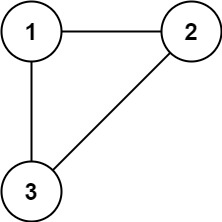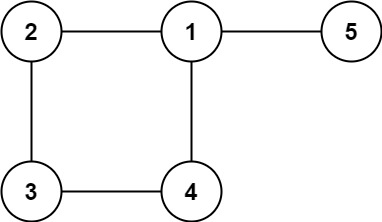0684. Redundant Connection
https://leetcode.com/problems/redundant-connection
Description
In this problem, a tree is an undirected graph that is connected and has no cycles.
You are given a graph that started as a tree with n nodes labeled from 1 to n, with one additional edge added. The added edge has two different vertices chosen from 1 to n, and was not an edge that already existed. The graph is represented as an array edges of length n where edges[i] = [ai, bi] indicates that there is an edge between nodes ai and bi in the graph.
Return an edge that can be removed so that the resulting graph is a tree of n nodes. If there are multiple answers, return the answer that occurs last in the input.
Example 1:

Example 2:

Constraints:
n == edges.length3 <= n <= 1000edges[i].length == 21 <= ai < bi <= edges.lengthai != biThere are no repeated edges.
The given graph is connected.
ac1: Union Find detect cycle
ac2: DFS detect cycle
https://leetcode.com/problems/redundant-connection/discuss/277026/DFS-Java-Solution-With-Explanation
But with high time complexity.
Last updated